Food groups explained
Fruit and vegetables:
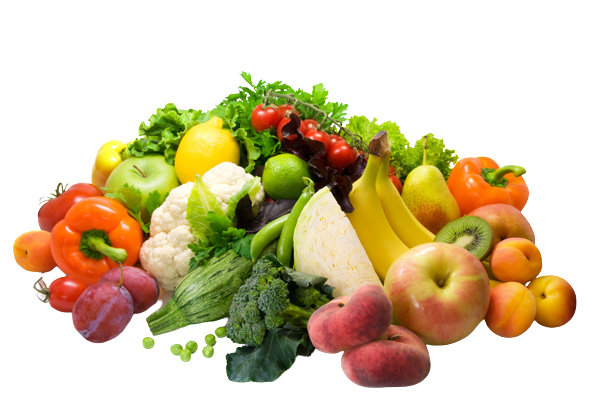
It’s recommended that we eat at least 5 portions of fruit and vegetables a day such as green beans, spinach, butternut squash, callaloo, mango and papaya.
They are a great source of essential vitamins, minerals and fibre which are all needed to keep our bodies healthy.
Fruit and vegetables should make up at least a third to a half of what we eat every day and you can choose from fresh, frozen, tinned and dried. Try to limit your intake of smoothies and fruit juices to 150 ml per day as they are usually high in sugar and don’t contain as much fibre.
Carbohydrates:
Carbohydrates are foods that break down to glucose in the body. These may be sweet foods like cakes, sweets, chocolate, biscuits, sugared breakfast cereals, honey, fruit and concentrated fruit juices, or starchy foods like potatoes, pasta, plantain, fufu, chapati, rice and bread.
Sweet (refined) carbohydrate foods should be limited as it can lead to weight gain. These types of carbohydrates are classified as having a high glycaemic index.
There are healthier choices that you can make with starchy foods. Wholegrain varieties have a much lower glycaemic index and more fibre so choose these when possible. Examples of these are whole-wheat pasta, wholegrain bread, brown rice and potatoes with their skin on which provide the most nutrients and contain higher levels of fibre.
Fibre is a type of carbohydrate that comes from plants. Studies have shown that people who eat more fibre in their diet have a lower body weight, lower blood pressure and cholesterol levels. Fibre can help you feel full which helps prevent overeating. It also delays the absorption of certain nutrients in your blood such as sugar and fats and helps your gut bacteria to thrive and produce substances which are though to be protective for heart health.
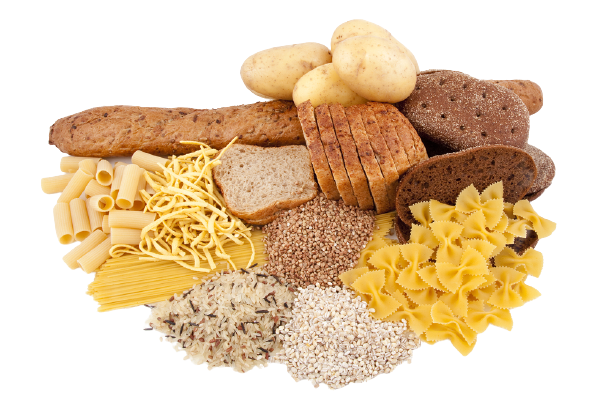
Dairy and alternatives:
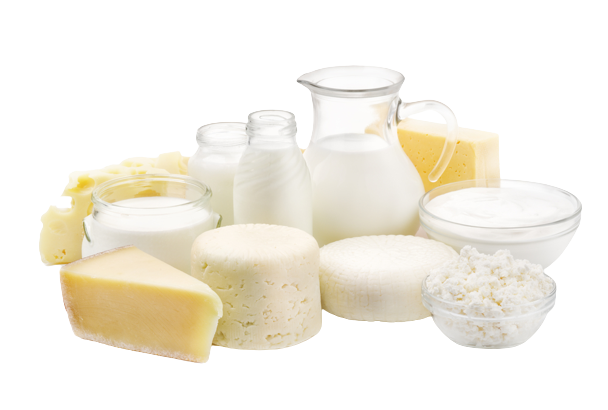
Dairy includes things like milk, yoghurt, cheese, evaporated milk, soya milk and paneer. You should aim to eat 2 – 3 portions of dairy a day.
Dairy products are a great source of calcium, which is really important to keep your bones strong, protein, which is important to build and repair muscles, and vitamins.
As these foods can be high in saturated fat, you should try and choose lower fat varieties where possible. Too much fat can increase your cholesterol levels. Fat is also the highest source of calories so can lead to weight gain.
Beans, meat, fish, eggs, pulses and other proteins:
All of these foods are rich in vitamins, minerals and protein, which is essential for building and repairing muscles and tissues in our body. We should aim to eat 2–3 portions a day and 2 portions of fish, 1 of which is oily fish, per week.
Try to choose leaner meats such as chicken, turkey or goat, and limit the amount of red and processed meat, such as bacon and sausages, as these tend to be higher in saturated fat.
Pulses such as beans, lentils and peas are good alternatives to meat as they are great sources of protein and fibre and are lower in saturated fat.
White fish is a good source of protein and is low in fat. Oily fish contains omega 3 fatty acids which are essential fatty acids that cannot be made by the body in sufficient amounts. They can lower triglycerides (a type of ‘bad’ fat found in the blood) and help protect against heart disease.
Examples of oily fish include salmon, sardines and mackerel.
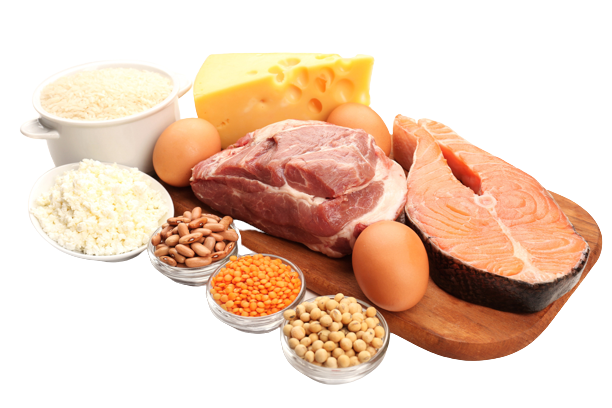
Oils and spreads:
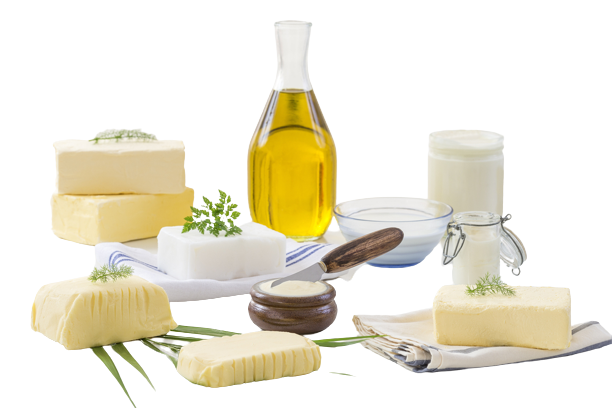
We do need some fat in our diets but this should be limited and come from unsaturated fats such as sunflower, rapeseed and olive oils and spreads made from these oils.
There are good fats called monounsaturated fats which include, avocados, olives, almonds, cashews and peanuts. Try to use cooking oils made from plants or seeds like canola, olive, peanut, soybean or sesame oils rather than saturated fats such as ghee, butter, palm and coconut oil.
Too much fat in our diets, particularly saturated fats, (such as in meat, ghee and other animal products) raises our cholesterol levels which increase the risk of developing heart disease and stroke.
Foods high in fat, sugar and salt:
As part of a healthy diet, we don’t need any foods that are high in saturated fat, sugar and salt. Salt can raise blood pressure, so avoid adding salt to food and cooking and avoid processed/ tinned food with high salt levels.
High fat, sugar and salt foods will damage our health and increase the risk of developing heart disease, diabetes, certain types of cancer and strokes. Obvious examples of these are cakes, biscuits, crisps, chips, fast foods, ice cream and sugary drinks.
We should only eat these foods very occasionally and in small amounts as they are high in calories, saturated fat, salt and sugar which over time can seriously affect our health.
Ready made meals also have high amounts of fats, salt and sometimes have added sugar. Avoid buying highly processed foods such as frozen nuggets or pizza as they offer little nutritive value.
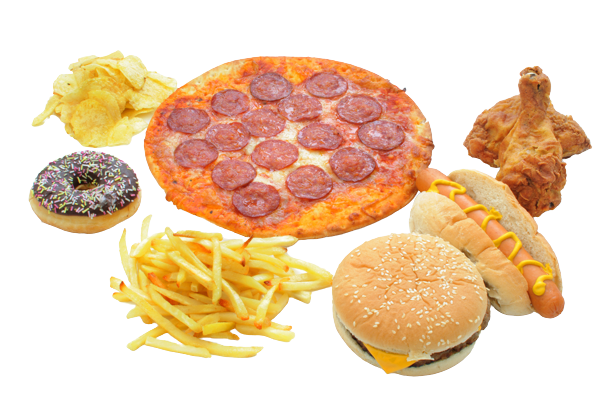


Leave a Reply
You must be logged in to post a comment.